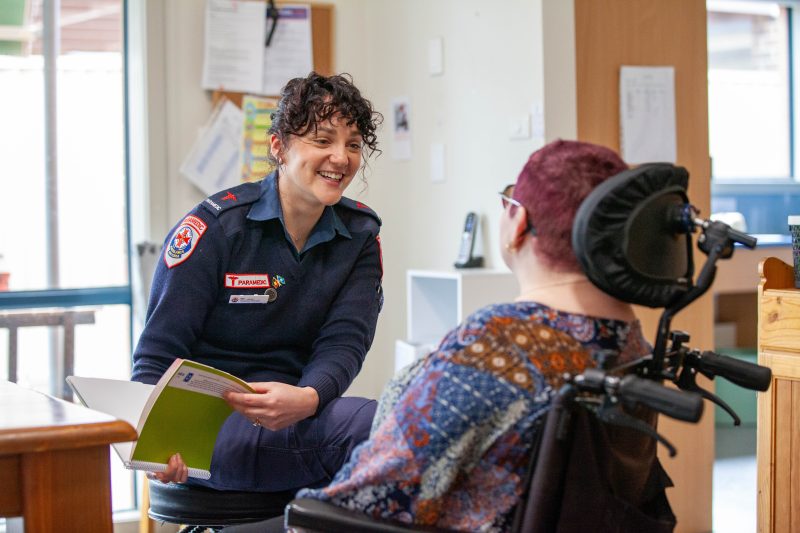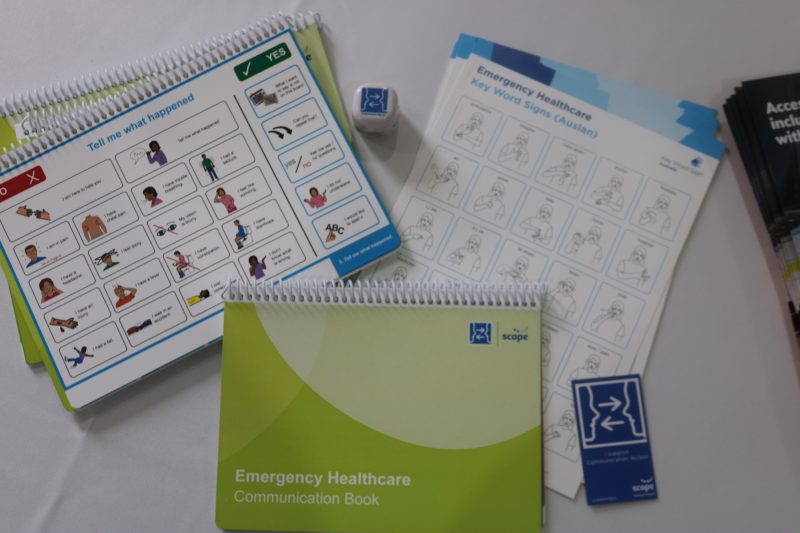Ambulance Victoria (AV) recently supported the launch of a key disability inclusion project, led by Scope, which will have a huge impact on the delivery of emergency healthcare for people with communication disability.
Scope launched the national Best Care for People with Communications Disability project at the AV Capability Hub in Sunshine North last week.
The project includes a suite of resources, tools and training to equip healthcare practitioners, including paramedics, to be able to effectively communicate with those with communication disability.

The resources will help both patients and healthcare practitioners communicate with each other.
About one in seven people experience permanent or temporary communication disability and it’s not uncommon that AV paramedics respond to an incident where it can be challenging to establish communication with a patient.
One of the key resources includes an Emergency Healthcare Communication Book, which paramedics can use while on-road and interacting with patients.
AV Executive Director Regional Operations Danielle North said AV has been a co-design partner with Scope for these new resources after learning and hearing from the community about what they needed.
“We’re thrilled to support the delivery of these important tools across our workforce and health services to make an impact on the community,” she said.
“It will break down barriers and improve the quality of care for people with communication disability during medical emergencies.”

The Best Care communication resources.
An AV training module is now available to all staff and Ms North said the paramedics who choose to complete the module will feel empowered to better communicate with a significant community group.
“We know some patients experience barriers such as giving informed consent, having their method of communication understood and having a level of choice and control,” she said.
“This training and these tools will reduce barriers and equip our paramedics in providing quality, safe and effective patient care to all patients.
“We are committed to creating a service and workplace that is more communication accessible and disability inclusive – and this is one of the many ways we are contributing to these initiatives.”
CEO of Scope Kate MacRae said Best Care is an example of how creating more accessible environments can be achieved through meaningful collaboration.
“Collaborating with organisations in the healthcare sector is essential to creating a more accessible and inclusive environment,” Ms MacRae said.
“It can be a really frightening situation when a person with a disability is in a health emergency, and they are unable to communicate with the health team that are trying to help them. And we know it’s equally difficult for those health teams – who feel unable to provide the best level of care to their patients.
“Best Care is about creating a healthcare environment where people with communication disabilities can be heard, understood, and respected.
“These resources will not only help emergency workers communicate more effectively but will also provide patients with the confidence to express their needs clearly during what can be an overwhelming time.”




